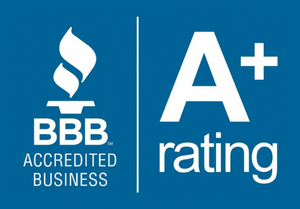Under the federal Fair Labor Standards Act (FLSA)
Every hourly employee in the nation is entitled to receive a fair wage for time spent working.
Salaried workers, day rate employees, hourly straight pay workers and 1099 contractors:
IT IS AGAINST THE LAW FOR AN EMPLOYER TO RETALIATE AGAINST YOU FOR A FILING A CLAIM UNDER THE FLSA
The laws covering worker pay are complicated, and often employers get it wrong. The U.S. Department of Labor has estimated that 70% of all employers in this country may not be paying their employees correctly.
Tens of thousands of workers already have claims pending against their employers.
At Dave Johnson Investigations, we thoroughly investigate all forms of wage theft. The wage claim form Texas and Fair Labor Standards Act (FLSA) requires that all employees be paid overtime when they work more than 40 hours a week. and while there may be exceptions to the rule, overtime is a requirement for everyone, including workers who are paid a salary, a day rate, or straight hourly pay.
Here are some ways that employers may be violating the federal Fair Labor Standards Act (FLSA) and other state laws:
- Paying non-exempt workers a “salary” (flat rate per week, per pay-period, or per month), when the law requires that such workers be paid hourly rates plus overtime (1½ their normal rate of pay). If you work more than 40 hours per week, you may be entitled to overtime pay regardless of whether your employer labels you a salaried employee or not.
- Paying workers a day rate. Such workers often work over 40 hours per week and may be entitled to overtime compensation.
- Classifying employees as “independent contractors” (aka 1099 contractors). Many employers attempt to avoid fair wage laws by treating their employees as independent contractors. A true independent contractor controls the details of their work, and are not subject to the direct instruction or supervision concerning those details by employers. Therefore, most workers cannot legally not qualify as true independent contractors. Characterizing them as such is simply a way for employers to deny workers their overtime compensation and other legal protections.
What are the Overtime Rules for Salaried Employees?
- The most important rule is that all workers who are paid a salary are overtime eligible unless they fall within a handful of narrowly construed exemptions to the overtime requirements.
- Job titles, job descriptions or industry custom are meaningless when evaluating whether a salaried worker is overtime eligible.
- Employment agreements do not determine whether someone is overtime eligible. In other words, just because your employer tells you that you aren’t entitled to overtime doesn’t make it so.
- The amount of the salary doesn’t dictate whether workers are overtime eligible. The overtime laws do not discriminate against workers based on their rate of pay.
Can I receive overtime and back wages?
The general rule is that all workers are overtime eligible unless you fit within one or more of the narrowly construed exemptions to the overtime requirements. To determine whether one or more of these exemptions applies, requires a review of the actual duties you perform. Our attorneys and private investigators are very experienced in conducting a free overtime evaluation and can quickly assess whether you may be owed back wages.
Some of the factors we investigate in determining whether salaried workers are overtime eligible:
- Do you fire, hire, discipline or direct other employees on your own?
- Do you supervise any employees on your own?
- Do you perform the same duties as hourly workers?
- Are you considered a trainee or did you work as a trainee for more than a month?
- Does your employer dock or deduct money from your salary when you are late, leave early or work partial days?
- Does your job require you to perform routine or repetitive tasks, manual labor, perform work on a production line, or engage in sales?
- Does your employer provide you with defined guidelines, practices or procedures describing how to perform your job and when to perform certain tasks?
- Do you work outside or at a desk?
- Do you have any advanced degrees or licenses?
Job titles of workers in the oilfield that we have assisted include the following:
- Fluid/Mud Engineer
- Solids Control Operator
- Field Specialist
- Sand Coordinator
- Fishing Tool Operator
- Pressure Control Operator
- MWD/LWD
- Directional Driller
- Surveyor
- Driller
- Coil Tubing Operator
- Wireline Operator
- TCP Specialists or Operators
- Pipeline Inspector
- Service Supervisors
- Well Site Supervisors
- H2S Operators
- Cement Specialists
If you believe that you have been denied wages or other employment benefits, please contact us immediately. We can help you.

